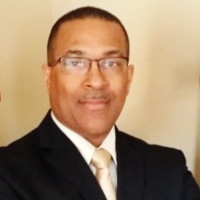Before the COVID-19 crisis struck worldwide, the church in the United States was already in a hostile cultural milieu, one that it helped to create.
Now that we are almost two months into the pandemic-induced state of emergency, congregations are finding new ways to face unforeseen challenges. Faith leaders have turned to online worship, digital devotionals, and even old-fashioned phone trees to keep their members engaged and to provide spiritual relevance in this time of crisis.
As the Day of Pentecost approaches, underlying challenges that have faced the church in the U.S. from the very beginning are still with us. Long before the coronavirus showed up, “social distancing” of a covert nature was already in effect in many of our churches. In many contexts, Christian leaders have failed to call to account the consciences of their congregations and their communities for maintaining divisions in our society and church. In this way, a key part of the founding narrative of the United States, “E pluribus unum,” has been lacking in American churches from the start. We are indeed many, but we are far from one.
What can we learn about creating a diverse congregation from the example of the Christian community in Acts 2?
Let’s take a look at how God opened a way for us to find unity in diversity on the Day of Pentecost. A fresh application of the Acts 2 text may help us create models of ministry that will lead to repentance, revival, and ultimately more diverse congregations, especially in light of the current disruption.
First of all, there were days of Pentecost before the Pentecost described in Acts 2. Commanded in Leviticus 23, the festival of Pentecost signaled the end of the agricultural year and the beginning of harvest and the time of “gathering in.” The Pentecost described in the Acts of the Apostles changed and continues to challenge every notion of what is real and possible. This Pentecost was God’s signal that this “gathering in” of the nations had begun, adding more meaning to this day through a mysterious and miraculous act.
It is past time for congregations to catch up with God’s order and reclaim or recover this Pentecost.
How? Believers recover Pentecost through concerted efforts at bringing the body of Christ together. In Acts 1 they met together (verse 6) and joined together in prayer (verse 14). By Acts 2 they were all together (verse 1). If we will be the church of Pentecost, we will be the church that comes together on common ground—and in the current milieu, I mean on a metaphorical or digital level, not physically—by reiterating our belief in a risen Savior and identifying with the work that needs to be done as Peter did in Acts 1:15. Peter did what was necessary (verse 21) to make things right. For them it was the replacement for Judas. What will it be for us?
Believers recover this Pentecost by focusing on the purpose of the Pentecost narrative: communication. Among believers, the Holy Spirit opens the way for communication to occur in a language those we witness to will understand. There are many accounts of immigrants, particularly Latinx/Hispanic, who are accosted by whites for speaking their native language. “You’re in America, speak English!”
But God shows us a different paradigm. Believers are empowered to adapt their communication to the needs (and in the appropriate modes, whether Zoom, Twitter, phone, sidewalk chalk, etc.) of those we witness to in order to gather them in. God does not require that we gather only to speak the language of the dominant culture. The Holy Spirit brought a bewildered, disparate crowd together when Jesus’ disciples spoke out. Why? Because the assembled crowd heard the disciples speaking their own languages.
What does it mean for us to speak another’s language today? Peter begins his proclamation declaring that the Spirit would be poured out and prophecy, visions, dreams, and signs would be poured out.
The Spirit’s manifestation is primarily about the ability to communicate in ways that will overcome barriers and bring people together. In today’s quarantined environment, this may seem harder than ever.
Yet our Pentecost will not focus on speaking in foreign languages. Our Pentecost will focus on communication that gathers nations within a nation to heal our brokenness, bitterness, and woundedness caused by our national history of social, economic, and political divisiveness and infighting.
What is the power of this Pentecost? What is the first sign of being filled with the Holy Spirit? It is the ability to communicate with those to whom we are sent to be witnesses!
Brothers and sisters, what are we to do? The day has come and is long past for the church, by the power of the Holy Spirit, to be used by God to bring peoples from all nations together.

